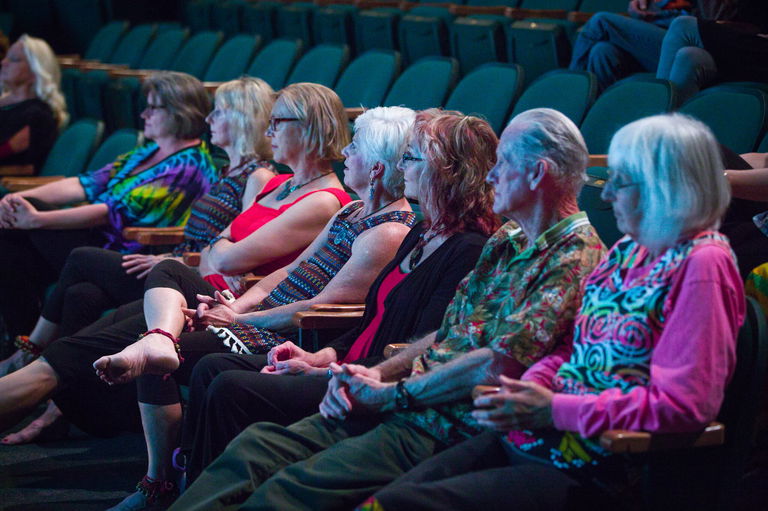
Pursuing an Uncertain Career
Paul Byron
Nov 5, 2014
This is the second contribution from Paul Byron, an artist, art therapist, and educator based out of Toronto. He will be sharing his stories, and highlights pertaining to the arts and cultural sector. To read more of Paul’s work, head to his personal blog, The Y/X-change. Stay tuned for monthly contributions from Paul.
One of the greatest issues with being a creative professional is that one’s ability to innovate is always being tested, both creatively, in the art work one makes, and in the professional directions one chooses. Every week I ask myself, “OK, what now?”, knowing that the answer determines whether I’ll make any progress, however defined. Most undergo self-questioning from time to time on a personal level, but less so in normal work situations, where a baseline of tasks are clearly spelled out, and expectations about what one is doing are set at a point well in the future. The tenuous nature of the arts trade means that more often than not, you’re thinking about how to make money rather than making it, and you may not know what you’ll be up to in a week or two. Working all the time for the chance to work some of the time can be tiring and seriously depressing.
Given all this, how do I advise young artists or anyone interested to move into the field?
There’s an interesting article, “In the Name of Love”, which talks about the “do what you love” mentality looming large in art and other fields. In interviews with successful professionals, you hear that phrase a lot, when they are inevitably asked what advice they have for the younger aspiring generation. There’s a grain of truth to what they say: it makes sense to strive towards something you prefer doing. Focusing on your love for it also helps you to continue on against adversity. The point of the article is that “do what you love” often acts as a concept borne of social privilege which ignores the reality of those who simply can’t afford to.
No one should refrain from what they love, of course. But emphasizing pure wilfulness as a motivator can be irresponsible. Love and Passion are great, but Reason isn’t such a bad addition to the mix. Realistically sizing up what it is you want to do with a knowledge of what’s out there, what’s needed, and whether you have the skills to fill that niche is a necessary part of it. It’s something you’ll be evaluating and re-evaluating constantly throughout your career, and it’s never too early to adopt a practical mindset – especially since this is often a foreign concept for those of us with creative leanings! It personally took me a long, long time to arrive at the realization that art, after all is said and done, IS a business. In fact, the art of business may be of more importance for one’s success than the art of art. This is only valuable information if you want to make money at what you do. If you don’t, then you never have to entertain a corporate thought in your head, ever!
The question about the value of art school is a whole other kettle of fish. Although it’s based in the U.S., Indicting Higher Education in the Arts and Beyond is another illuminating read, as it discusses the high cost of arts degrees versus financial outcomes in the form of careers. (Spoiler alert: It’s a grim freakin’ picture.) I don’t feel qualified to say whether anyone should or shouldn’t attend higher education in the arts. It also isn’t possible for everyone. I will say that I’m a big fan of education in general, in the many forms it comes in. There are plenty of opportunities that require postsecondary credentials, but there are lots of programs on offer which don’t. The reality is that doing good work is the main thing about being an artist, and that making connections in the arts community is the way to get people to appreciate your work and provide feedback on it, both of which are key to growth. Going out and meeting people is something you can dive into at any point along your learning spectrum. In fact, gaining hands-on knowledge of art’s social world is an education unto itself. Whatever path you decide is right for you, it’s about being a self-motivated person who does everything they know to do, remains humble about things they can’t, and practices resourcefulness to fill the gaps between.
Finally, the uncertain nature of an arts career also means that emotional stability is an essential ingredient to getting by. We all have images of the unstable, romantic figure madly creating on the fringes. While it’s true that not a few tortured souls live in the pages of art history books, those artists with relatively humdrum existences are far more numerous, in fact. Public image is one thing – one is perfectly free to play a role – but inwardly it helps to have a centering practice, to contend with the mostly non-dramatic day-to-day life of a real artist. Hobbies help, and outside interests also stand to enrich whatever creative discipline you focus on.
Having said all this, being an artist is the most rewarding career I can imagine for myself, and others I know similarly feel “called” to the practice rather than having decided anything…which may or may not make any or all of the above moot!





